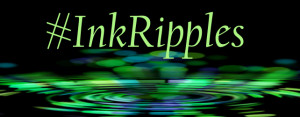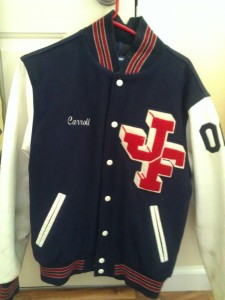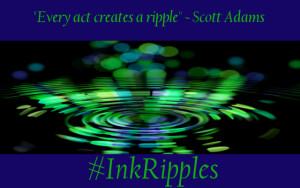I guess I was born a feminist. When I say “feminist,” I mean someone who believes women should have equal rights to men (for further discussion on this, see my post “Females in YA: Part 9 Feminism”). What girl isn’t born a feminist? And for that matter, what boy isn’t? I have a hard time believing a boy could be born and suddenly think, “I am a far superior being than any girl and deserve to be treated as such.”
But then we (both girls and boys) are exposed to our parents’ ideas, beliefs, and prejudices; and then our peers’ ideas, beliefs, and prejudices (and by extension their parents’ I/B/P); and societies’ I/B/P. So somewhere along the way, many of us become non-feminists. Or maybe we stop thinking that feminism is still important or relevant.
I think this was me in middle and high school: though I never stopped believing women deserve equal rights to men, I just didn’t see the need for feminism anymore. Admittedly I fell into the trap of thinking being a feminist meant I had to be a radicalized bra-burning, man-hating woman. And I also believed I was being treated equal to my male peers.
Here’s the thing I’ve learned as I’ve gotten older: It was an earlier push for equal rights that granted me the ability to be apathetic about it. I grew up playing sports in a post Roe v. Wade world and post Title IX era, which states, “No person in the United States shall, on the basis of sex, be excluded from participation in, be denied the benefits of, or be subjected to discrimination under any education program or activity receiving federal financial assistance.”
 That created an environment where my fellow female athletes and I were often celebrated along with our male counterparts because we were just as successful, or even more successful. We were treated with respect and won awards and accolades. We wore our own letter jackets, not our boyfriends’. Not to say we never heard the comments about “playing like a girl” or where our “place” in the world was, but I always felt those comments were from people of an older generation who had no clue. They were antiquated ideas, outdated. Or so I believed at the time.
That created an environment where my fellow female athletes and I were often celebrated along with our male counterparts because we were just as successful, or even more successful. We were treated with respect and won awards and accolades. We wore our own letter jackets, not our boyfriends’. Not to say we never heard the comments about “playing like a girl” or where our “place” in the world was, but I always felt those comments were from people of an older generation who had no clue. They were antiquated ideas, outdated. Or so I believed at the time.
As I’ve gotten older and my horizons have expanded beyond my (maybe progressive) hometown, I’ve seen a bigger picture of how women are being treated in the U.S. and the world. It’s not a pretty picture. I’ve also been educating myself about the gender pay gap (see “There’s A Gender Pay Gap At Every Age, And It Only Gets Worse As Workers Get Older” by Shane Ferro), sexism in the tech industry and Hollywood (see “Why are women leaving the tech industry in droves” by Tracey Lien and “The Women of Hollywood Speak Out” by Maureen Dowd), and the cost of staying home to raise children (see “When Being A Stay-At-Home Mom Isn’t a Choice” by Jillian Berman).
I see the assault on a woman’s right to make choices about her own body and the rampant and disgusting sexism in this year’s presidential election, and the importance of feminism is more obvious to me than ever before. I have a desire to be more outspoken in my mindset of being a feminist. I sometimes feel alone in this because sexism isn’t rampant in my everyday life and in the live’s of many of the people I know, and there isn’t necessarily an immediate need for us to rise up and demand equal rights. I’m lucky to live in a place where my rights as a woman are protected…for now.
It’s that “for now” that gives me pause and drives me to a greater call. I want the next generation of women to feel secure in their rights and that they are considered equal to men. I want them to feel this way their whole lives, not have a sense that their worth erodes as they get older, which is something I have begun to feel and I’m only in my mid-thirties.
Feminism is a topic I have many, many thoughts on, far too many for one blog post. I know, too, that it’s a divisive topic. I’ll be revisiting it throughout the month here on the blog. Coming up soon, look for a post about how my first novel ELIXIR BOUND ended up having many feminist viewpoints in it, initially without a lot of intention on my part.
 #InkRipples is a monthly meme created by Katie L. Carroll, Mary Waibel, and Kai Strand. We pick a topic (March is all about feminism), drop a ripple in the inkwell (i.e. write about it on our blogs), and see where the conversation goes. Be sure to check out Kai’s and Mary’s posts this month. We’d love to have you join in the conversation on your own blogs. Full details and each month’s topic can be found on my #InkRipples page.
#InkRipples is a monthly meme created by Katie L. Carroll, Mary Waibel, and Kai Strand. We pick a topic (March is all about feminism), drop a ripple in the inkwell (i.e. write about it on our blogs), and see where the conversation goes. Be sure to check out Kai’s and Mary’s posts this month. We’d love to have you join in the conversation on your own blogs. Full details and each month’s topic can be found on my #InkRipples page.



















